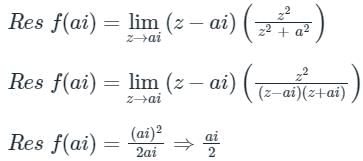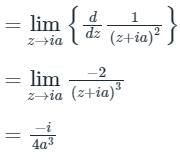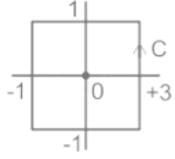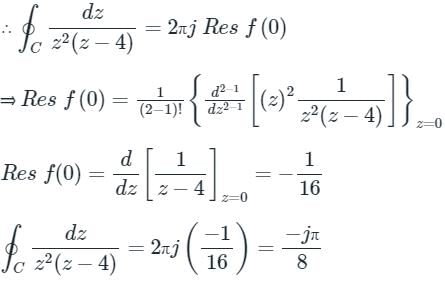Electronics and Communication Engineering (ECE) Exam > Electronics and Communication Engineering (ECE) Tests > Test: Residue Theorem - 2 - Electronics and Communication Engineering (ECE) MCQ
Test: Residue Theorem - 2 - Electronics and Communication Engineering (ECE) MCQ
Test Description
5 Questions MCQ Test - Test: Residue Theorem - 2
Test: Residue Theorem - 2 for Electronics and Communication Engineering (ECE) 2025 is part of Electronics and Communication Engineering (ECE) preparation. The Test: Residue Theorem - 2 questions and answers have been prepared
according to the Electronics and Communication Engineering (ECE) exam syllabus.The Test: Residue Theorem - 2 MCQs are made for Electronics and Communication Engineering (ECE) 2025 Exam.
Find important definitions, questions, notes, meanings, examples, exercises, MCQs and online tests for Test: Residue Theorem - 2 below.
Solutions of Test: Residue Theorem - 2 questions in English are available as part of our course for Electronics and Communication Engineering (ECE) & Test: Residue Theorem - 2 solutions in
Hindi for Electronics and Communication Engineering (ECE) course.
Download more important topics, notes, lectures and mock test series for Electronics and Communication Engineering (ECE) Exam by signing up for free. Attempt Test: Residue Theorem - 2 | 5 questions in 15 minutes | Mock test for Electronics and Communication Engineering (ECE) preparation | Free important questions MCQ to study for Electronics and Communication Engineering (ECE) Exam | Download free PDF with solutions
Detailed Solution for Test: Residue Theorem - 2 - Question 1
Detailed Solution for Test: Residue Theorem - 2 - Question 2
Detailed Solution for Test: Residue Theorem - 2 - Question 3
Test: Residue Theorem - 2 - Question 4
Let (-1 - j), (3 - j), (3 + j) and (-1 + j) be the vertices of a rectangle C in the complex plane. Assuming that C is traversed in counter-clockwise direction, the value of the countour integral  is
is
Detailed Solution for Test: Residue Theorem - 2 - Question 4
Detailed Solution for Test: Residue Theorem - 2 - Question 5
Information about Test: Residue Theorem - 2 Page
In this test you can find the Exam questions for Test: Residue Theorem - 2 solved & explained in the simplest way possible.
Besides giving Questions and answers for Test: Residue Theorem - 2, EduRev gives you an ample number of Online tests for practice
Download as PDF


 Then
Then





 is a residue at z = ia of f(z)
is a residue at z = ia of f(z) for z = ia is
for z = ia is






 f(z)dz = 2πi × [sum of residues at the singualr points with in C]
f(z)dz = 2πi × [sum of residues at the singualr points with in C]







 is
is



















